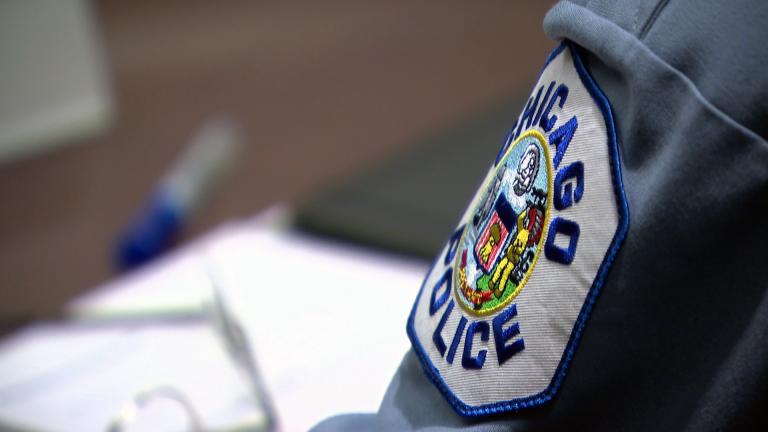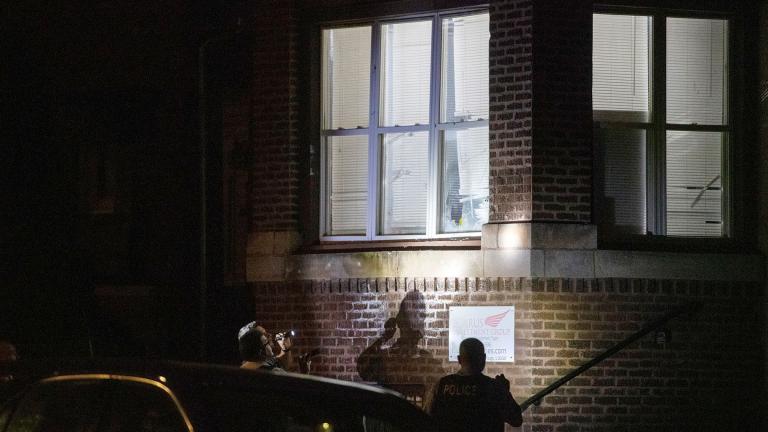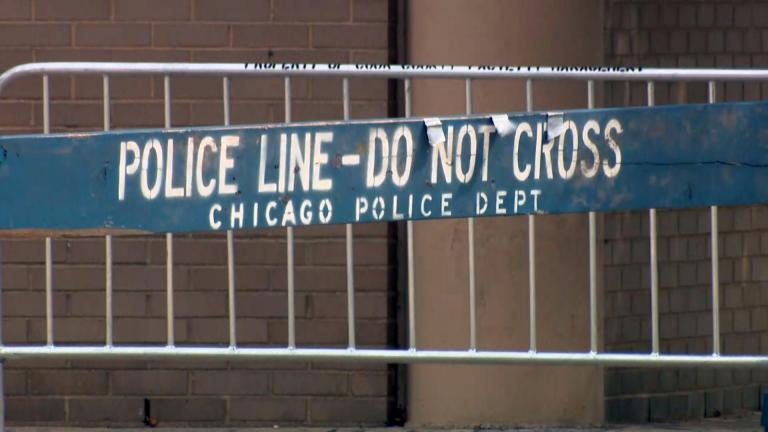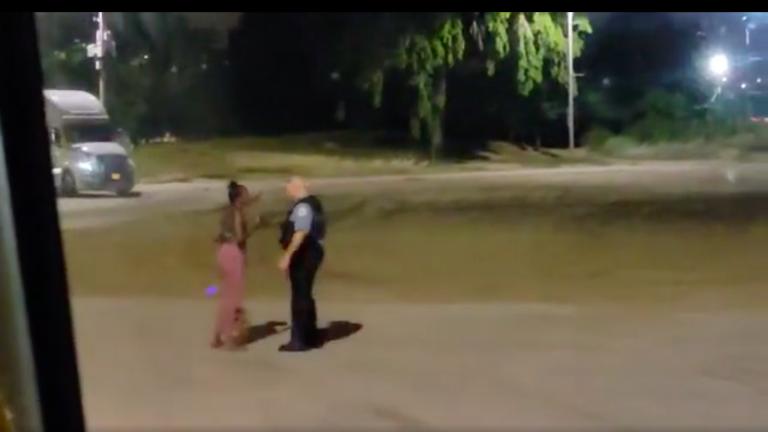Chicago Police Superintendent David Brown has been on the job for about six weeks. He takes over at a time when homicides are up slightly over 2019 and a global pandemic has shuttered businesses and caused a spike in unemployment.
Still, Brown is optimistic. He’s aiming for the city’s homicide rate to fall below 300 a year — he calls it the moon shot. Over the years, many of his predecessors have vowed to bring that rate down, but it has persisted at about 400 to 500, spiking in 2016 to 756 as the city reeled from the release of the Laquan McDonald police shooting video.
Brown met WTTW News on Wednesday near Ogden Park in the city’s Englewood neighborhood. He says he chose the location because it reminded him of the neighborhoods in which he grew up in Dallas, Texas.
More: Watch our full interview with Chicago’s top cop.
Brown says his goals for Chicago start with the entire city believing that they’re possible. He’s talked about reviving the use of mobile strike forces that can deploy to crime hot spots across the city. That tactic has caused controversy in the past, and was most recently done away with by former Police Superintendent Garry McCarthy in favor of stronger community and beat-oriented policing methods.
“One of the ideas I have I think can overcome some of the challenges of past history is to have these officers more in a community-oriented facing effort,” Brown said. “An example would be a community service day, taking a community service project, as a group, like a Habitat house, help with that. Or deliver meals. Or interact in the community, where you see some of these birthday rides across the country, where officers are rolling through on their PA system and wishing young and elderly happy birthday, to create that trust building. There doesn’t have to be just an enforcement impact. There could also be trust building with a large group that hasn’t been used here before, but can be very effective with building trust which leads to reducing crime.”
Brown, a Dallas native, served from 2010 to 2016 as that city’s chief of police. He received general praise for his crime-reduction strategies and focus on transparency, but the Dallas homcide rate was slightly higher in his last year than his first. Brown says the entirety of his tenure was marked by some of the lowest rates in recent Dallas history.
“We had the lowest murder rate in 84 years, since 1930, during my tenure,” Brown said. “We had the lowest overall crime and violent crime in over 50 years. So if you do a start-to-finish analysis, I would agree with you. But where I would disagree is, year by year, every life saved is a life worthwhile being saved. So one murder is one too many, and we had the lowest since 1930 in our murder category, and we weren’t hiding any bodies. So we want to rest on the statistics that matter when it relates to saving lives.”
Beyond crime reduction, Brown has to lead a department that is in the midst of reform efforts driven by a federal consent decree. The decree has been tremendously unpopular among members of the Chicago Fraternal Order of Police, and helped catapult John Catanzara – a former on-duty cop with a controversial past – to the union’s leadership position.
We asked Brown how he’d navigate the competing dynamics of the FOP and the consent decree.
“I’m a big believer in reform,” he said. “I think reform can be the template to building trust. And I think it should be a baseline, not a ceiling of what we should be doing to gain the trust of our community. I hope to be quite persuasive with our union leadership, in ensuring that they understand that we cannot do this job alone, without the trust of the community. And reform gives us that pathway, a strong connection to the community.”
Brown has garnered a national platform in recent years for his handling of a tragedy in Dallas in which several police officers were killed, and for his own personal tragedy – having a son who shot and killed a police officer, who was then shot and killed himself.
“I have a deep empathy for people, not just people in the community. I have a deep empathy for cops. I really appreciate the nobility of the profession, and the brave and courageous things they do every day to protect us, along with what violence does to people in neighborhoods, because I’ve experienced it personally, in losing a family member, my son. So I have a deep empathy that I think Chicagoans will be the beneficiary of. And I’m really looking forward, and am excited about, the journey ahead,” Brown said.
Follow Paris Schutz on Twitter: @paschutz
Watch our full interview with Brown, below.







